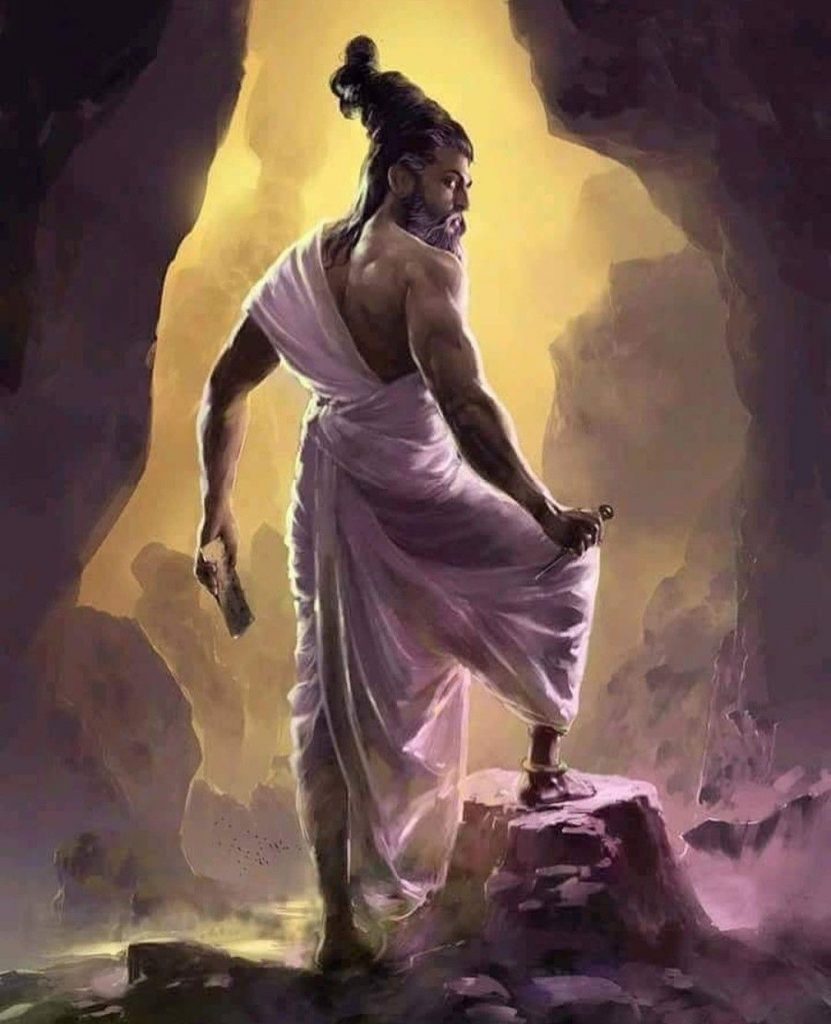
தந்தை மகற்காற்று நன்றி அவையத்து
முந்தி இருப்பச் செயல்.
Thandhai Makarkaatrum Nandri Avaiyaththu
Mundhi Iruppach Cheyal (67)
The best thing parents can do for their children is to prepare them stand foremost in the assembly of the learned.
पितृदेवातिथीपिता विद्याप्रदानेन पण्डिताग्रेसरं सुतम् ।
यदि कुर्यात्सुतस्यैतत् महत् साह्यमुदीर्यते ॥ (६७)
पिता करे उपकार यह, जिससे निज संतान ।
पंडित-सभा-समाज में, पावे अग्रस्थान ॥ (६७)
ತಂದೆಯಾದವನು ತನ್ನ ಮಗನಿಗೆ ಮಾಡುವ ಉಪಕಾರವೆಂದರೆ ಬುದ್ದಿ ಜೀವಿಗಳ ಸಭೆಗಳಲ್ಲಿ ಎದೆಗೊಟ್ಟು ಮಾತನಾಡುವ ಹಾಗೆ ಅವನಿಗೆ ವಿದ್ಯೆ ನೀಡುವುದು. (೬೭)
താതൻ പുത്രന് നൽകുന്ന ശ്രേഷ്ഠമാം ധനമൊന്നുതാൻ പണ്ഡിതന്മാർ സമൂഹത്തിൽ മുൻ നിൽക്കാൻ പ്രാപ്തമാക്കുക (൬൰൭)
Macht ein Vater seinen Sohn zu einem der Ersten in der Versammlung der Gelehrten, ist dies das Beste, was er für ihn tun kann.
மகன்தந்தைக்கு ஆற்றும் உதவி இவன்தந்தை
என்நோற்றான் கொல்எனும் சொல்
Makandhandhaikku Aatrum Udhavi IvandhandhaiEnnotraan
Kol Enum Sol (70)
The son’s duty to his father is to make world ask, ‘By what austerities did he merit such a son!‘
किंवा तप: कृतं पित्रा प्राप्तुमेतादृरां सुतम् ।
इति लोकै: स्तुत्: पुत्र: पितु: स्यादुपकारक: (७०)
पुत्र पिता का यह करे, बदले में उपकार ।
`धन्य धन्य इसके पिता’, यही कहे संसार ॥ (७०)
ಮಗನು ತನ್ನ ತಂದೆಗೆ ಮಾದುವ ಉಪಕಾರವೆಂದರೆ, ತಂದೆ ಇವನನ್ನು ಪಡೆಯಲು ಎಷ್ಟು ತಪಸ್ಸು ಮಾಡಿದನೋ ಎಂಬ ಜನರ ಉದ್ಗಾರ. (೭೦)
തപത്താലിത്ര സൽപ്പുത്രൻ ജനിച്ചെന്നു ജനങ്ങളാൽ പുകഴ്ത്താനിടയാക്കുന്നതച്ഛനോടുള്ള നന്ദിയാം (൭൰)
VDer Sohn kann seinem Vater keinen größeren Dienst tun, als so zu handeln, dass andere sagen: Welche Buße übte sein Vater!.
After speaking about the qualities of a good householder, and of a good spouse, Tiruvalluvar now devotes ten couplets to the virtues of good children, and the responsibilities of the parents towards them. I have selected two couplets that appealed to me the most – one speaks about the duties of parents towards their children, and the other sums up how children can make their parents proud of them.
The best gift any parent can give their child is the gift of learning. This held true thousands of years ago, and this holds true even now.
Notice that I said learning, not education. Today’s focus on rote education does not create thinkers – it creates assembly-line workers. In fact, this system of syllabised education was devised to help people join the factory workforce – and it did work during the Industrial Revolution. This catapulted the world into the 21st century, and brought prosperity to us as a species.
But the factory-based economy is on it’s way out, and the knowledge-based economy has been steadily replacing it. This calls for a fundamental change to the way children are being educated, to prepare them for the new wave of jobs and ways of working that focus on productivity in terms of tasks accomplished, rather than a 9-5 factory stint.
Regardless of the century that we read this Kural in, the meaning remains timeless. The foremost duty of parents is to provide their children holistic education, one that prepares them to stand on their feet and excel in what they do. Learning begets prosperity, fulfilment and a balanced outlook towards life. This is the greatest gift a parent can give their child.
Tiruvalluvar also speaks of how children can make their parents happy. While the author has mentioned a male child, he means both sons and daughters. A parent does not expect anything from their child – but it is the duty of the child to make them proud by learning well, being virtuous and playing a good role in society. The emphasis is not on a give and take kind of relationship – it is about how both the parents and their children can fulfil their respective duties in family life, and thus make a better society.
